Museum gives insight into police life during WW2
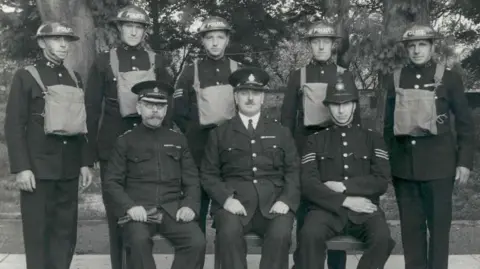 Essex Police
Essex PoliceA museum has given a glimpse of what it was like to be a police officer during World War Two as the country prepares to mark the 80th anniversary of Victory in Europe (VE) Day.
Huge crowds took to the streets on 8 May 1945 to celebrate after nearly six years of war.
In a blog post, Essex Police Museum explained that the war presented new challenges to policing: air raid precautions, ration fraud and captured enemies all needed to be dealt with, on top of the usual crimes.
During the war, 291 officers left the county's police forces to serve in the Armed Forces, and teenagers as young as 15 were recruited as messengers.
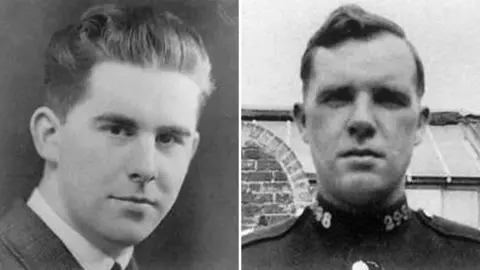 Essex Police
Essex Police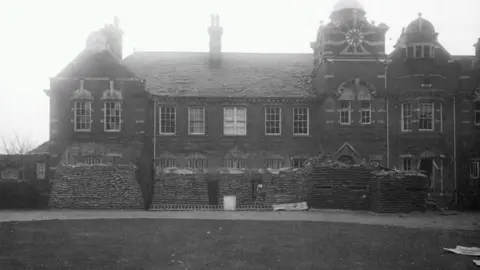 Essex Police
Essex PoliceIn total, 32 officers from the Essex, Colchester and Southend forces were killed on military service and two more died in the bombing of police headquarters in Springfield, Chelmsford.
In November 1940, a German aircraft dropped bombs across Springfield and one landed in front of two officers at the main entrance of police headquarters, killing them.
While sandbags saved the building from any structural problems, there was a lot of damage to the roof, windows and ceilings.
An assessment showed that the clock had stopped at 19:17, the exact time of the blast, and not a single window remained intact.
The second bomb landed in the chief constable's garden opposite the room where an officer named Capt Peel and his wife were eating dinner, but they managed to escape.
Sandbags were stacked as high as the first floor at the old Southend Police Station in Alexandria Street.
Police buildings were also subject to blackout regulations, and this combined with the sandbagging and other precautions caused stuffy and unpleasant conditions.
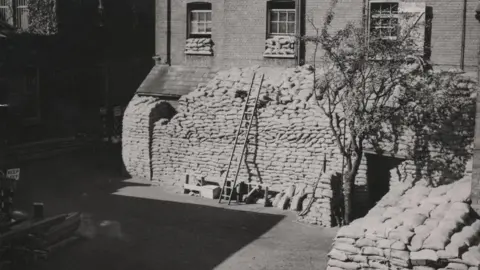 Essex Police
Essex PoliceInsp Harold Tomalin wrote a letter describing his experience as an officer in World War Two.
The letter painted a picture of the impact the war had on many officers.
He said: "Whilst off duty fire-watching, we usually sat up late in case of emergency duty and then slept rough, fully clothed on camp beds, in small rooms with other men."
Many officers were staying away from their families and had to be ready for duty 24/7.
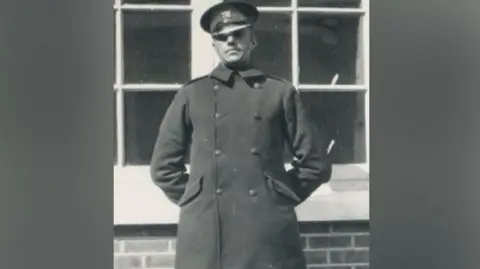 Essex Police
Essex PoliceJudith Tomalin, daughter of Insp Tomalin, lived at 31 Kingston Crescent, Chelmsford, during the war and said she was often frightened by the air raids.
"Some of the bombs that were dropped were called incendiary bombs and they were mostly used at night time," she said.
Women and some older citizens used to be put on fire-watching duties, she said.
They would warn everyone that there was a fire using a rattle and blowing whistles to ensure people knew they were in danger.
There was an air raid shelter behind the house and Ms Tomalin said: "I did sleep down there a couple of times – but I didn't like it."
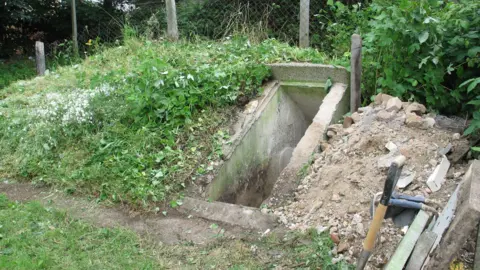 Essex Police
Essex PoliceThe VE Day celebrations were some of the happiest memories for local children, said Ms Tomalin.
"Well, that was a very happy time... on VE night there was a huge bonfire put in the middle of the skid pan and we all went down to it," she said.
"Instead of Guy Fawkes... Hitler was on the top".
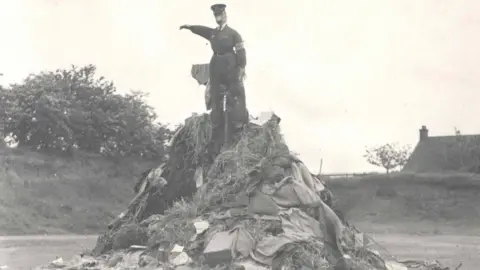 Essex Police
Essex Police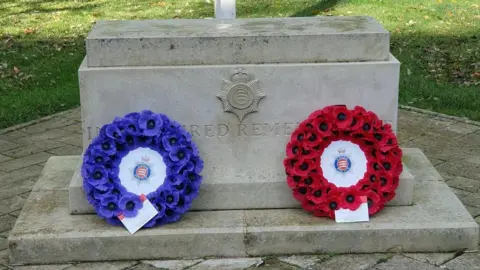 Essex Police
Essex PoliceFollow Essex news on BBC Sounds, Facebook, Instagram and X.
